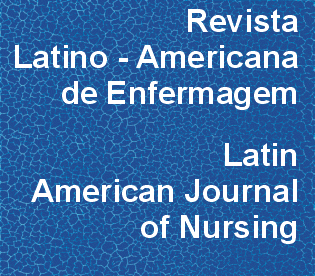Nurses' attitudinal and normative beliefs concerning hemodynamic assessement by pulmonary artery catheterization
DOI:
https://doi.org/10.1590/S0104-11692006000600013Keywords:
nursing care, intensive care, catheterization, Swan-Ganz, behaviorAbstract
The objective of this study was to identify, by using the Theory of Reasoned Action/Theory of Planned Behavior, the attitude and normative beliefs that influence the behavioral intention of the nurse to perform a hemodynamic assessment using the pulmonary artery catheterization. Data were collected through semi-structured interviews involving 23 nurses from three hospitals in the city of Campinas, São Paulo. The data were analyzed according to a qualitative methodology. Among the Attitude Beliefs, affective beliefs and those related to the advantages and disadvantages of performing the behavior stand out. Among the Normative Beliefs social referents were identified for the behavior, as well as the behavior-stimulating factors and the factors that discourage the performance of the behavior.Downloads
Download data is not yet available.
Downloads
Published
2006-12-01
Issue
Section
Original Articles
License
RLAE’s authorship concept is based on the substantial contribution by each of the individuals listed as authors, mainly in terms of conceiving and planning the research project, collecting or analyzing and interpreting data, writing and critical review. Indication of authors’ names under the article title is limited to six. If more, authors are listed on the online submission form under Acknowledgements. The possibility of including more than six authors will only be examined on multicenter studies, considering the explanations presented by the authors.Including names of authors whose contribution does not fit into the above criteria cannot be justified. Those names can be included in the Acknowledgements section.
Authors are fully responsible for the concepts disseminated in their manuscripts, which do not necessarily reflect the editors’ and editorial board’s opinion.
How to Cite
Pinto, C. J. M., Colombo, R. C. R., & Gallani, M. C. B. J. (2006). Nurses’ attitudinal and normative beliefs concerning hemodynamic assessement by pulmonary artery catheterization. Revista Latino-Americana De Enfermagem, 14(6), 915-922. https://doi.org/10.1590/S0104-11692006000600013



